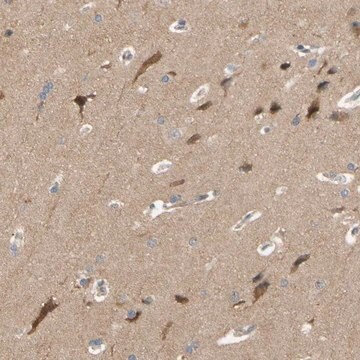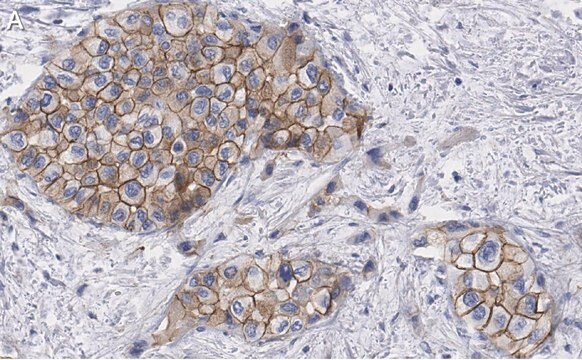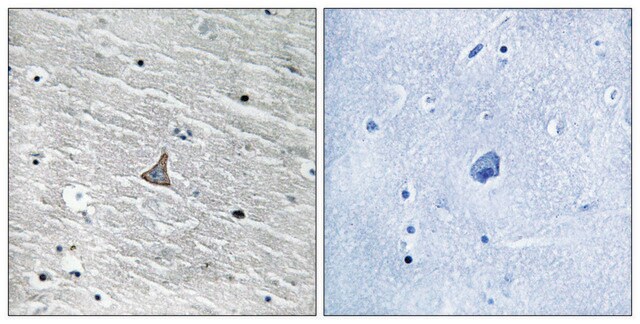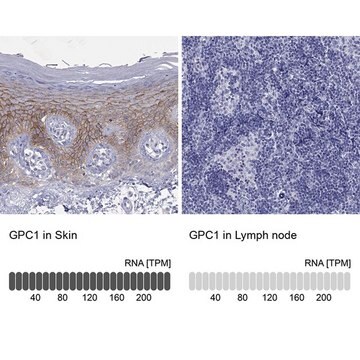MAB2600
Anti-Glypican-1 Antibody, clone 4D1
clone 4D1, from mouse
Synonym(s):
glypican 1, glypican proteoglycan 1
About This Item
Recommended Products
biological source
mouse
Quality Level
antibody form
purified antibody
antibody product type
primary antibodies
clone
4D1, monoclonal
species reactivity
human, rat
technique(s)
immunohistochemistry: suitable (paraffin)
western blot: suitable
isotype
IgG1κ
NCBI accession no.
UniProt accession no.
shipped in
wet ice
target post-translational modification
unmodified
Gene Information
human ... GPC1(2817)
rat ... Gpc1(58920)
General description
cell-associated forms, including syndecans, glypicans, and secreted extracellular matrix forms, such as perlecan. Glypicans contain six family members to date and are proteins bound to the outer surface of the plasma membrane by a glycosyl-phosphatidylinositol anchor and involved in cellular adhesion and migration and function as accessory molecules for signaling receptors, (Filmus, 2008 & Gui, 2006). Current publications indicate the main function of membrane-attached glypicans is to regulate the signaling of Wnts, Hedgehogs, fibroblast growth factors and bone morphogenetic proteins (BMPs), (Filmus, 2008).
Glypican-1 (GPC1) is over-expressed in human gliomas and appears to have a greater capability of promoting FGF-2 signaling in some gliomas versus HSPGs in normal astrocytes. Additional observations suggest that GPC1 can impact the growth of pancreatic cancer cells by attenuating tumor angiogenesis, (Whipple, 2008).
Specificity
Immunogen
Application
A 1:50 dilution of a previous lot detected strong cytoplasmic staining of tumor cells in formalin-fixed, paraffin-embedded gangliobastoma tissue sample. There was negative staining of normal, uninvolved cells.
Cell Structure
ECM Proteins
Quality
Target description
Physical form
Storage and Stability
Analysis Note
PC-12 cell lysate.
Other Notes
Disclaimer
Not finding the right product?
Try our Product Selector Tool.
Storage Class Code
12 - Non Combustible Liquids
WGK
WGK 1
Flash Point(F)
Not applicable
Flash Point(C)
Not applicable
Certificates of Analysis (COA)
Search for Certificates of Analysis (COA) by entering the products Lot/Batch Number. Lot and Batch Numbers can be found on a product’s label following the words ‘Lot’ or ‘Batch’.
Already Own This Product?
Find documentation for the products that you have recently purchased in the Document Library.
Our team of scientists has experience in all areas of research including Life Science, Material Science, Chemical Synthesis, Chromatography, Analytical and many others.
Contact Technical Service








